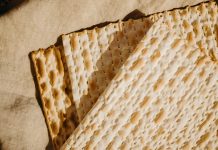This week marks the beginning of the Chinese New Year. To celebrate, my husband and I took our daughter to a dinner organized as a fundraiser by a local Chinese teacher who is planning to take her students to Taiwan in the spring.
We had met this teacher last year, when she organized, again with her students, a different Chinese New Year party, one primarily aimed at families like ours who have adopted children from China and other Asian countries.
My husband is Chinese, so I have fewer anxieties than some other non-Asian parents of Asian children when it comes to introducing my daughter to Chinese culture. Half of Willow’s family is Chinese, so I figure I don’t have to work so hard to ensure that she feels comfortable in her skin as she grows. But a funny thing happened one day recently as we were driving to her preschool. We were talking about people who have different shades of skin (my effort to instill a we-are-the-world lesson) and Willow declared that she and I have the same skin; that she looks just like me. Those who know us, or who have seen a photo of the two of us together, will likely giggle at this preschool pronouncement, as I did. But it got me thinking about identity and just what it is and how we mold our identities to the ideas we think of as, or wish to be, true.
Fu-Mei, the Chinese teacher who organized the parties we attended this year and last, is, of course, a native speaker of Chinese and she also speaks perfect English. I contacted her after we met her last year to ask her if she would help us as a translator in our efforts to contact the foster family who raised Willow during her first year of life. We wish to establish fluid communication with them if possible and, not being speakers of their language, understand in advance how challenging this might be.
We don’t even know exactly how to get in touch with them, as the orphanage that oversaw our daughter’s foster care has strict rules about not facilitating communication between adoptive families and foster families. So we hired a woman from the Boston area whom we met over the web last year to do some research in the province and city that Willow is from and, while she was not able to make contact with Willow’s foster family on that trip, she did find another foster parent from the area who said that she knew Willow’s foster parents and who promised she would get their phone number for our researcher the next time she was back in the area.
While at the Chinese New Year party last weekend, we met a teenaged adoptee from China who introduced herself to us with both her English and Chinese names. I wondered if her Chinese name was the one she was given at her orphanage or if she and her family chose a new one together but did not ask.
My daughter has a Chinese name that she was given at the orphanage that oversaw her care. We kept part of it as her middle name, deciding that we wanted to honor her history and the people who cared for her as an infant. All of the children whose care was administered and overseen by that particular orphanage during that particular time have the same name, Lin, as well as another name that is more particular to each child. We did not choose to keep the other name, as we weren’t sure we knew how to pronounce it properly and felt embarrassed by our clumsy attempts. So our daughter became Willow Lin, which, we felt, flowed nicely. Lin is the surname of the man who directed the orphanage when Willow was admitted to it and while she was in the system.
Since our daughter has been home with us she has suffered from nightmares and refuses to sleep in her own bed. This was true even when she was in a crib. She has always wanted nightly physical contact with me and wakes up wailing, even at age four, if I leave the bed in the morning before she does. Now that she can communicate freely, she tells us about a recurring dream she has, a dream in which a bad man takes her away. She has this dream frequently, sometimes several times a week.
From what we have been able to piece together, the man who ran the orphanage, Mr. Lin, picked her up in the dark of an early morning with the assistant director of the orphanage to bring her to a government office in the province’s capital where my husband and I were waiting. From what we know, she was plucked from the only home she knew, still in her pajamas, and spirited away, where she, the chain-smoking director Lin, and the assistant director drove for two hours in the dark and cold mid-November morning to meet us. She arrived disoriented, having been pulled from the people she knew as her parents to be placed into the care of strangers. She smelled of urine and cigarette smoke. Her diaper was heavy and sopping weight. One of the first things I did for her was change her, while she wailed and gestured toward the windows, looking for and calling for “mama,” a woman I have yet to meet but desperately hope to.
Of course, there was another mother before Willow’s foster mom, a birth mother, from whom she was wrested the day or day after she was born. No doubt she suffered trauma from that early schism as well. No doubt both of them did.
So when my daughter says that she looks like me I think about what really goes into identity. Is it what we want, what we know, what feels right, even when there is evidence to the contrary? I think about the teenage girl at the Chinese New Year party who gave us her English and Chinese names upon introduction, a girl who showed our daughter the artifacts and elements of Chinese calligraphy as if she were born to it, as if it were something she always knew.
I spoke to that girl’s father briefly. He told me that he and his wife had always allowed their daughter’s Chinese identity to be her thing, not theirs. He said they never forced the Mandarin lessons or Chinese culture camps on her that so many other occidental parents of Asian children feel obliged to encourage. Knowing that this young woman was learning Chinese at the school that was hosting the party, I asked if his daughter knew any Chinese before high school, to which he replied no.
But now she is learning Chinese, and it her decision to do so. Now she is introducing herself to strangers by both her English and Chinese names, and it is her decision to do so.
And how will our daughter identify herself to others as she grows older? How will she self-identify? I only know this: she is as much my daughter as she is the daughter of two other women a world away. And perhaps in this triangulation of identities she will find her own true self, aided and abetted by us, but hopefully not dictated.
It is the job of the parent, I was reminded this week in the wake of the continuing Amy Chua tiger mom firestorm, to prepare the child for her path, and not prepare the path for the child. Let her lead the way, I intone to myself. I know I will follow her wherever she chooses to take me.


































